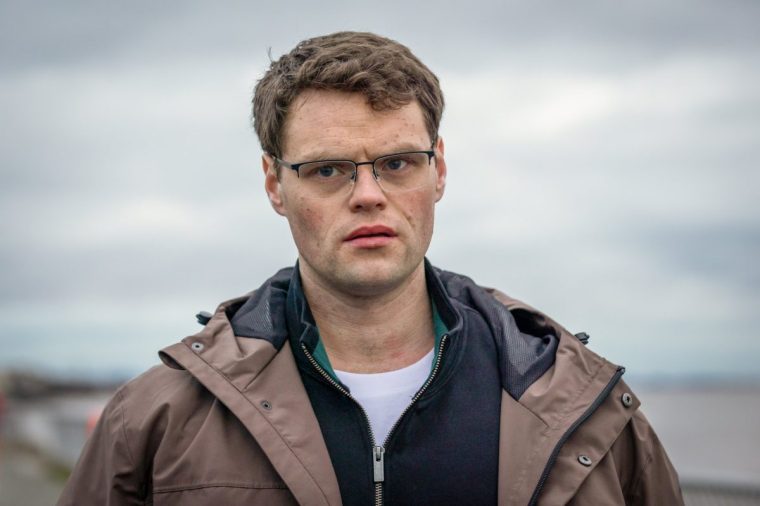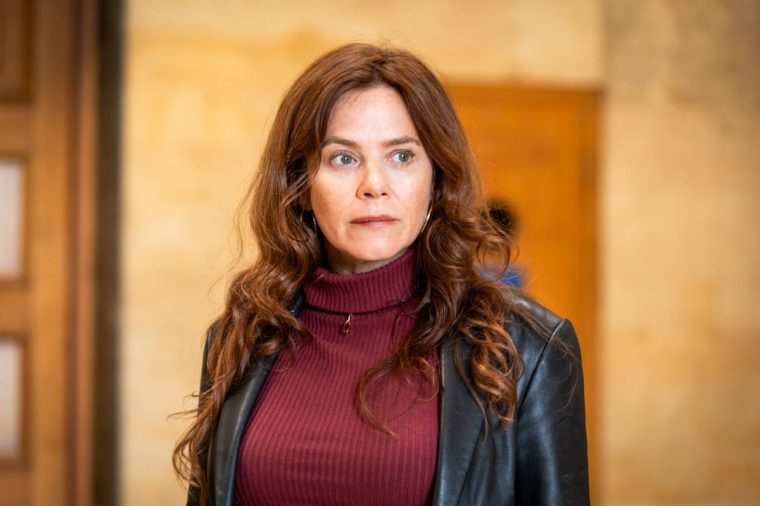Jimmy McGovern’s challenging, compassionate new drama proves he is one of TV’s best writers
Not for the first time in his career, screenwriter Jimmy McGovern turns his solemn attention to the legacy of childhood trauma and – in the case of his new one-off drama Unforgivable – the devastating fallout from sexual abuse. Because, as McGovern says himself, “Why write about things that do not matter?”
Anna Friel plays Anna, single mum to teenagers Tom (Austin Haynes) and Peter (Finn McParland). Tom has become almost completely non-verbal since his uncle, Anna’s brother Joe (Bobby Schofield), was convicted of grooming him.
While Joe serves the end of his prison sentence, his mother dies. She was the only member of the family who still talked to him; his dad (David Threlfall) wants nothing to do with him. And so, Joe is left adrift as his release date approaches.
This is a drama about how we see paedophiles, as much as an attempt to understand why they offend. Everyone from fellow prisoners to A&E nurses react to Joe. He’s worse than a murderer. Joe is held in a regular prison where inmates bang their doors and scream “nonce” as he passes by. Some lads recognise him on the seafront and chase him down, leaving him bloodied and limp. Society’s condemnation is total and unquestioning, but Unforgivable goes behind the headlines and attempts to offer some hope.

Compassion comes in the form of ex-nun Katherine (a flinty Anna Maxwell Martin), who welcomes Joe to her half-way house, set up to rehabilitate offenders. She’s hard to read as she asks Joe to describe what he did to his nephew, but something about her stillness draws him out as he begins to understand how his own past may have led to him his current state.
Schofield’s portrayal of Joe is skilful, contained and sympathetic. He’s worked with McGovern before, on Anthony and Time, and is fully conversant in the dramatist’s tendency towards understatement. Every actor effectively caps their emotions in favour of stillness, communicating a societal inability to express difficult, shameful things. That shame hangs like a fog, wrapping itself around every character, turning to anger over pub tables and terrace thresholds.
Friel’s low-boil anger embodies the show’s title, unable to pardon what her brother did to her child. Like many a McGovern mother before her, she grimly presses on with life, working and cooking and putting away football kits as the emotional wreckage piles up around her.
When she faces her brother at his probation office, she tells him about Tom’s suicide attempt. About how he’s on a waiting list for help while Joe receives all sorts of therapy and rehabilitation. While McGovern uses Anna as his vehicle to convey rage at injustice, Friel’s performed anger remains controlled throughout.

McGovern’s characters are so dignified and repressed, I find myself wanting them to let rip, if only to release the tension. But the skill in his writing is in his ability to bury their struggle under the weight of everyday life.
When characters do express emotion, they’re straightforward. “No one hates me more than I hate myself,” says Joe, marinating in self-loathing. It feels like a conscious decision to dispense with subtext so that the emotional through lines are clear and unequivocal.
Perhaps McGovern’s greatest achievement is removing all obstacles to our understanding of his core message. By the end of Unforgivable, with father and son finding their way towards some kind of reunion as Joe’s sister and nephews walk away, we know the writer is presenting compassion for abusers who repeat the cycle of abuse while still condemning their actions.
He is asking us to think about the subject more deeply. At the age of 75, he’s still better at that than anyone else writing for television.
‘Unforgivable’ is streaming on BBC iPlayer
